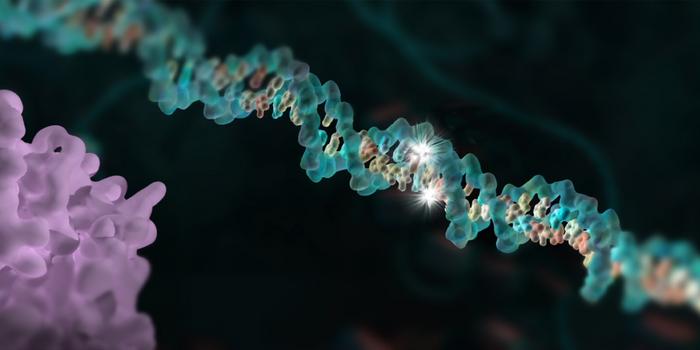Researchers at the Garvan Institute of Medical Research have taken a significant step towards unraveling the complexities surrounding rare genetic disorders in Australia. With the establishment of the Genomics of Rare Disease Registry, they aim to bridge the gap in diagnosing and treating rare diseases that afflict an estimated two million Australians. This national initiative is poised to transform the understanding of genetic disorders, offering patients and their families renewed hope in their search for answers.
At the helm of this groundbreaking research are Associate Professors Jodie Ingles and Owen Siggs, who serve as Co-Directors of the Genomics and Inherited Disease Program at Garvan. Their vision is clear: to create a comprehensive registry that not only catalogues cases with known or suspected rare genetic diseases but also seeks to uncover the underlying genetic causes. By connecting patients to each other, clinical trials, and future research opportunities, this registry represents a pioneering approach to personalized medicine in the realm of rare diseases.
The landscape of rare diseases is intricate and vast, with over 7,000 known conditions that impact fewer than 5 in 10,000 individuals. Many of these disorders can affect a variety of organs, including the brain, eyes, heart, kidneys, and immune system. Examples such as Huntington’s disease and retinitis pigmentosa illustrate the spectrum of conditions categorized as rare. Alarmingly, while approximately 8% of Australians experience a rare disease, less than half receive a definitive genetic diagnosis, leaving many without effective treatment options.
Professor Siggs emphasizes the lengthy and often convoluted journey faced by families dealing with a rare genetic disease. The inefficiencies in diagnosis can lead to unnecessary suffering, prolonging the time it takes for patients to receive a targeted treatment. The registry’s aim to streamline this process is not only about speeding up diagnoses but also about ensuring that individuals can access the most suitable therapies as rapidly as possible.
Meanwhile, Professor Ingles highlights the potential transformative nature of understanding the genetics behind rare diseases. This knowledge extends beyond just the individual patient, often affecting family members who may also be at risk. By identifying the genetic basis of conditions like inherited cardiomyopathies, families can gain insights into risk management and preventative options for future generations, paving the way for gene-specific therapies in the coming years.
Gathering information for this registry is a straightforward process for participants, who are invited to complete a 15-minute survey. The survey collects relevant medical histories and seeks consent to access medical records and communicate about research opportunities. This level of patient engagement is crucial for building an extensive database that can drive findings in genomic medicine.
Expressing interest in participation can be done through the registry’s official website—an essential step for individuals with a known or suspected rare disease looking to connect with researchers interested in their conditions. By joining this initiative, patients contribute to a larger body of research that may ultimately lead to improved treatments and diagnostic options for others with similar experiences.
Understanding the research left to be done is also paramount. The study has secured the approval of the Royal Children’s Hospital (Melbourne) Human Research Ethics Committee, which underscores the importance of ethical oversight in conducting research involving human subjects. This approval ensures that the registry adheres to rigorous ethical standards, providing a framework for responsible and respectful treatment of all participant data.
As this initiative unfolds, it serves as a reminder of the rapidly changing landscape of medical research and genetics. The collaborative nature of the Genomics of Rare Disease Registry not only embodies a scientific endeavor but also fosters a community among those affected by rare diseases. The interconnectedness of patients, families, and researchers amplifies the potential for breakthroughs in understanding and treating these complex conditions.
The advantages of this registry extend beyond mere data collection. By fostering relationships between patients and researchers, it may also create opportunities for individuals to participate in critical clinical trials for new therapies. As the focus shifts toward more personalized medicine, such collaborative efforts will be crucial in tailoring treatments to individual genetic profiles, enhancing the efficacy of available options.
Public interest in genetic research has surged in recent years, fueled by advances in technology and a better understanding of genomics. However, the reality remains that many rare diseases still lack sufficient attention from the broader medical community and funding bodies. The Garvan Institute’s initiative seeks to change that narrative by shining a spotlight on the genetic factors that drive rare diseases.
Moving forward, researchers hope that the insights gleaned from the registry will contribute to a growing body of literature around rare genetic disorders and their management. Improvements in genetic testing methods, combined with patient data gathered from the registry, could facilitate the development of more targeted therapies and diagnostic tools, ultimately closing the gap for those living with a rare disease.
In conclusion, the Genomics of Rare Disease Registry represents a critical evolution in the understanding and management of rare genetic disorders. Through comprehensive data collection and collaboration between patients and researchers, this initiative aims to not only decode the complexities of rare diseases but also provide practical solutions for those affected. The potential impact of this research is profound, offering hope for a future where every rare disease can be diagnosed accurately and treated effectively.
Subject of Research: People with rare genetic diseases
Article Title: Garvan Institute Launches Genomics of Rare Disease Registry to Transform Patient Outcomes
News Publication Date: October 2023
Web References: Garvan Institute of Medical Research
References: Garvan Institute of Medical Research, Royal Children’s Hospital HREC reference number 95179
Image Credits: Garvan Institute of Medical Research
Keywords: Genetics, Rare Diseases, Medical Research, Genetic Disorders, Patient Registry, Genomics, Clinical Trials, Personalized Medicine, Human Health, Rare Genetic Diseases, Genetic Testing, Healthcare Innovation




